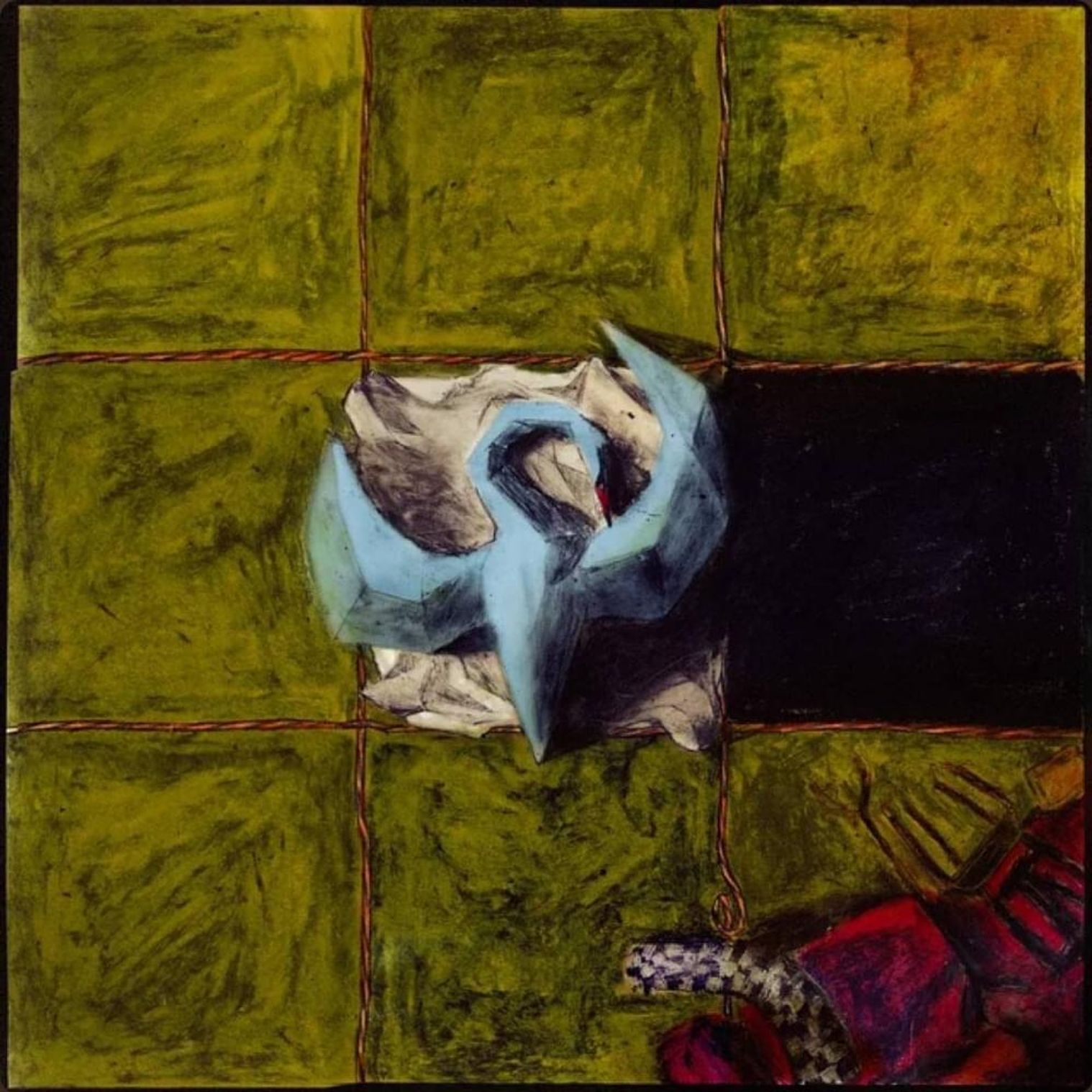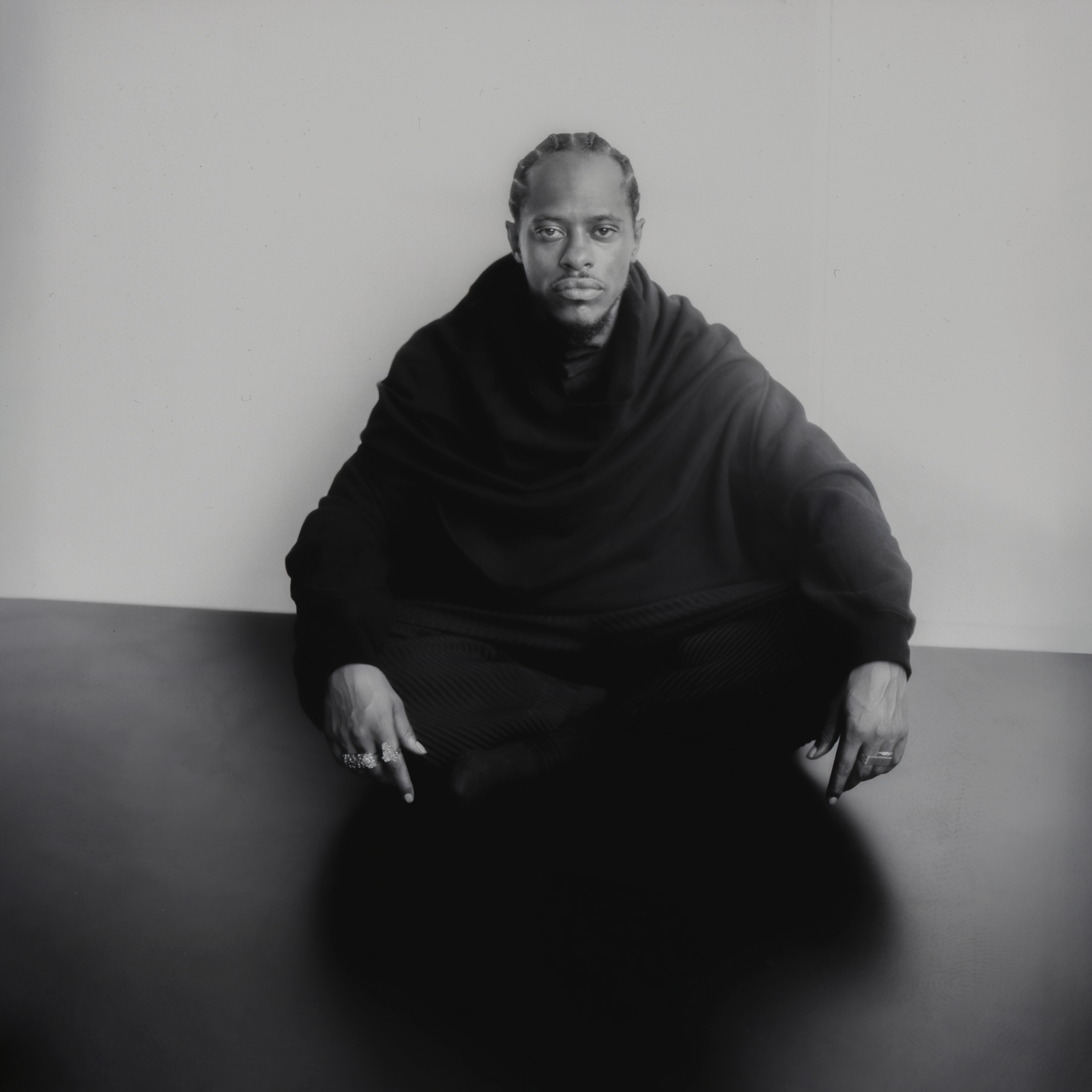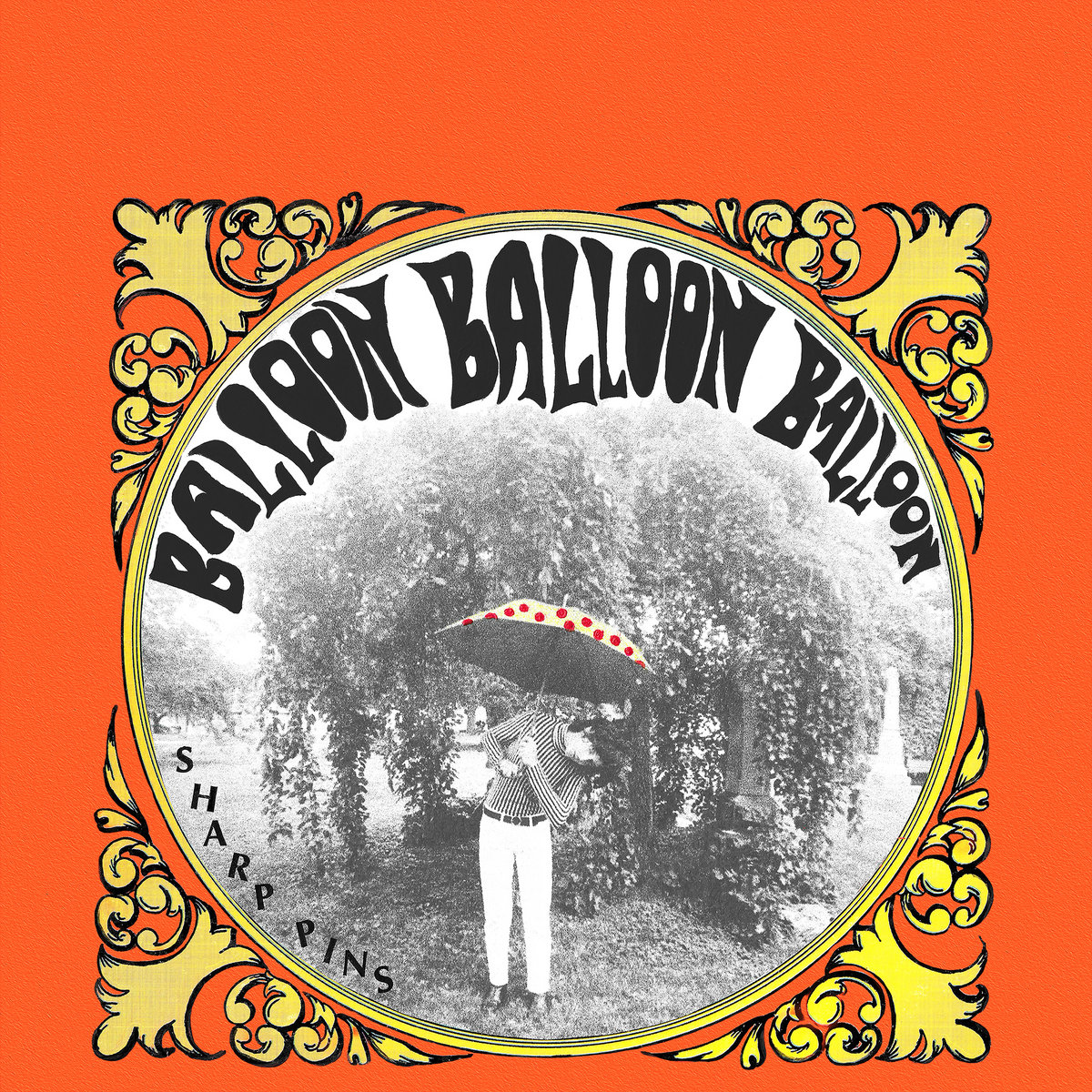There's a moment on "TMI" where Big Ups frontman Joe Galarraga tries to talk like a robot and totally fails. He literally says, "I am a robot from the 20th century / I am designed to never feel anything" in a spaced-out monotone that seems to serve as his version of the beep-bop-borp robot voice you learned in kindergarten. While he's doing that voice, his band's guitars stop their usual slash-and-burn stuff and instead go into a tense little tick-tock that seems like it's supposed to be mechanistic. Here's the problem: The New York band simply cannot do mechanstic. It's not part of their language. But then, that's not really a problem at all. On Eighteen Hours Of Static, their transcendent tantrum of a debut album, the New York band plays post-hardcore as something other than a here's-our-genre affectation; they play it like this seesawing cathartic moment is the only thing saving them from some deep chasm of unfeeling depression. And that's why the robot voice doesn't work: The band can't help but radiate a sort of physical instability. Even when they're trying to sound remote and emotionless, they still seem like they're seconds away from breaking.
Eighteen Hours Of Static is half an hour long, and that half-hour plunges me into a nameless, desperate nostalgia that doesn't fade even when I spend an entire day with the album on repeat. Usually, when bands revive a dead genre, there's something warm and comforting about it. Remember this genre you grew up with? Or maybe this one your parents grew up with? Well, here's a straight-up pastiche version of it! When that's done with precision, it can be a whole lot of fun, even if there's only so much you can really hope to express with an older generation's musical language. Eighteen Hours Of Static doesn't work that way. It evokes plenty of older music, but I don't get the sense, listening to it, that it intends to evoke that music. It sounds a lot, for instance, like the great half-forgotten mid-'90s Annapolis punk band Moss Icon, but I don't get the sense that the youngish band members bought the Moss Icon reissue that came out a couple of years ago, spent a bunch of time absorbing it, and then decided to make a band like that. Instead, I get the sense that this is raw, desperate music, and that the band members arrived at it organically -- because, perhaps, they are raw, desperate people, and because, perhaps, this was simply the music that started pouring out when they started to write songs.
The specific historical moment this music evokes is the moment when hardcore started to slide into post-hardcore, and then into emo, without anyone necessarily realizing that it was happening. Bands like Moss Icon and Circus Lupus and the Jesus Lizard and Quicksand probably just figured that they were punk bands -- punk bands who maybe picked up the threads of the later, weirder Black Flag records, who tried out different tempos and dynamics and melodic ideas, but who were still products of VFW Hall shows where guys sell 7" singles out of giant plastic longboxes at the back and everyone smells pretty bad. These were bands with ideas, but they were also bands who played music so fast and ferocious that the ideas sometimes had to sublimate themselves to the all-out attack of the music. They made music with something at stake, even if they didn't know quite what that was. I don't know how a band of young people in 2014, people who can record things on their computers if they'd rather do that, can hit those same emotional chords, but Big Ups have done it.
Big Ups don't entirely sound like they belong to that one mid-'90s moment. Some of their sounds seem to come from before; Galarraga, when he's in rant mode, can sound a bit like Suicidal Tendencies' Mike Muir, or like Ian MacKaye on the later Minor Threat records, where he'd just all of a sudden stop kinda-singing and go into full-on oratory. Some sounds come from later; at their slowest and most severe, Big Ups have some of the same nervy, searching neediness as early Thursday. But all of it speaks to a moment before this one. Albums don't sound this dirty and unstable and physical anymore. Big Ups recorded this in an actual studio, in a marathon three-day session, and you can tell; there's the ineffable people-in-a-room-together sense that Steve Albini still tries to capture when he records. That's an aesthetic choice; bands don't have to record that way as a cost-cutting measure anymore. But it's to Big Ups' credit that they make it sound like it has to sound this way, like the album's sound is a product of necessity. And there's craft in what they do, too, just as there was for those mid-90s bands. As songwriters, Big Ups know just when to switch from trashcan speed to a big, knuckle-dragging metal riff, or when to dial back the pyrotechnics and let the song breathe. But they play this stuff so quickly and instinctively that you almost don't hear the craft. They've made it sound like this is just what happens when you point a microphone in their direction.
This week, I almost gave Album Of The Week to emo-revival leading lights You Blew It!'s new album Keep Doing What You're Doing. That's another album that harkens back to another moment in punk-rock history, another era when every band seemed to mean everything they sang with every fiber of their beings. And like Eighteen Hours Of Static, that album is a very precise evocation, one that's full of good songs. The difference is that You Blew It!'s retro affectations seem planned-out, almost cynical. But for Big Ups, everything still feels like an electric jolt, like a transmission straight from the center of a jangled teenage brain. And, you know, that sense is what I liked about those older records in the first place. I can't believe I'm feeling it again, but I am.
Eighteen Hours Of Static is out now on Dead Labor/Tough Love.
[videoembed size="full_width" alignment="center"][/videoembed]
Other albums of note out this week:
• Bruce Springsteens awkwardly Morello-infused re-recorded odds-and-ends collection High Hopes.
• You Blew It!'s successful pro-emo argument Keep Doing What You're Doing.
• Grass Is Green's dizzy, rickety DIY indie-pop debut Vacation Vinny.
• Sharon Jones & The Dap-Kings' old-school soul celebration Give The People What They Want.
• Son Lux's thoughtful, atmospheric Lanterns.
• Hiss Golden Messenger's raspy lo-fi collection Bad Debt.
• Former Mt. St. Helens Vietnam Band frontman Benjamin Verdoes's solo debut The Evil Eye.
• Blank Realm's damaged and noisy but increasingly approachable Grassed Inn.
• Haunted House's raspy, industrial-influenced self-titled debut.
• Sondre Lerche's soundtrack for The Sleepwalkers.






